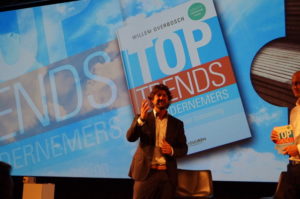Here’s a company, based in Hobart but working internationally, that can help your business understand its contribution to the United Nations’ 17 Sustainable Development Goals, measure progress and plan for impact. And it’s just won the top gong in the prestigious Good Design Awards, just to assure you’re in excellent hands.
Hobart-based start up, SDG Align helps businesses in the built environment understand where they are at in terms of sustainable development and understand what to do next in order to reap the benefits of doing business for good, through access to their custom designed, award-winning software.
Laid out in 2015, the UN’s 17 Sustainable Development Goals (SDGs) have become a global benchmark to unite industry and government in achieving greater outcomes for the planet and those on it.
The built environment has a key role to play in this, having a major impact environmentally, as well as being where the majority of Australians live, work, educate and generally exist.

SDG Align’s Willem Overbosch
“What we do with our software is we help businesses to get that broader perspective, get aligned with those broader goals, and then set them on the journey towards sustainable development,” SDG Align’s Willem Overbosch said.
The first step is establishing what businesses are already contributing to the SDGs — as the team has found, “no business is doing nothing”. SDG Align measures how habitual sustainable development is to a business — habit forming behaviour that establishes change.











